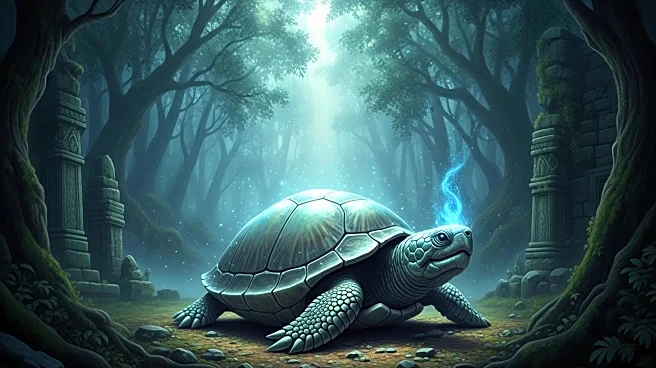What is the story about?
What's Happening?
Blizzard Entertainment has filed a lawsuit against Turtle WoW, a private server for World of Warcraft, alleging copyright infringement. Turtle WoW, which has been active since 2018, offers a version of the 2006-era WoW with fan-made expansions and new features. The lawsuit claims Turtle WoW has built a business on infringing Blizzard's intellectual property, despite being technically free, as it includes an in-game shop for donations. Blizzard's legal action follows Turtle WoW's announcement of Turtle WoW 2.0, a remake using Unreal Engine 5, which has gained significant attention and player engagement.
Why It's Important?
The lawsuit highlights the ongoing tension between game developers and private servers, which often offer alternative experiences to official games. Blizzard's action against Turtle WoW underscores the company's efforts to protect its intellectual property and maintain control over its player community. This legal battle could impact the future of private servers and fan-made content, potentially discouraging similar projects. It also reflects the broader industry challenge of balancing fan creativity with corporate interests, as companies seek to monetize their games while fans explore new ways to engage with them.
What's Next?
Blizzard's lawsuit could lead to the shutdown of Turtle WoW if successful, affecting its community of players. The legal proceedings may also set a precedent for how game developers handle private servers and fan-made content. Turtle WoW's creators have expressed their intention to continue operations despite the lawsuit, indicating a potential legal battle ahead. The outcome could influence other private server operators and fan projects, shaping the landscape of unofficial game modifications and community-driven content.
Beyond the Headlines
The case raises questions about the ethical and legal boundaries of fan-created content in the gaming industry. It highlights the tension between preserving gaming history and the rights of developers to control their intellectual property. The lawsuit may prompt discussions on how companies can collaborate with fan communities to create mutually beneficial outcomes, potentially leading to new models of engagement and content creation.















